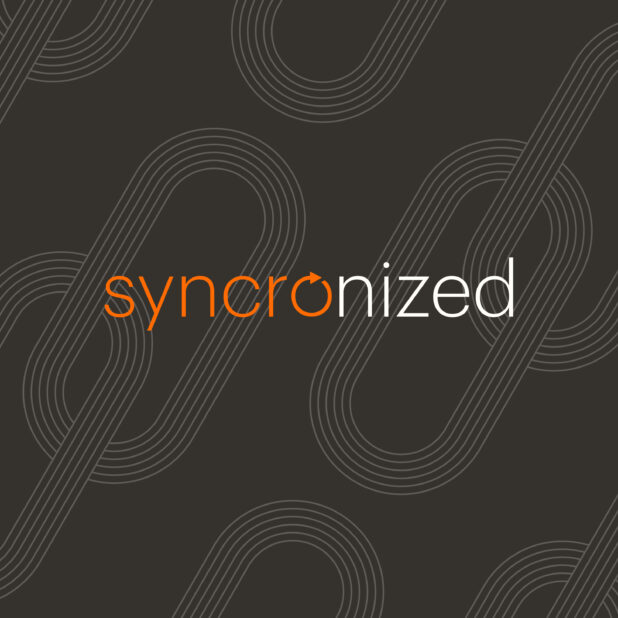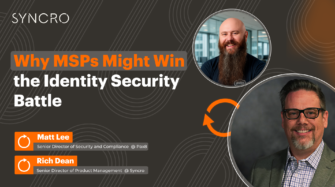Table of contents
Episode Summary
In this episode of Syncronized, host Brandon Garcin interviews Peter Melby, the CEO of New Charter Technologies, to delve into the intricacies of leadership and continuous improvement within MSP organizations. Peter shares his journey from co-founding an MSP at the age of 20 to leading a large-scale enterprise, emphasizing the importance of customer-centric approaches and the challenges of scaling a business. He discusses how the focus has shifted from simply addressing technical issues to understanding and anticipating customer needs to drive business success.
The conversation highlights the evolution of the MSP industry, particularly the transition from break-fix models to managed services and the need for recurring revenue models. Peter elaborates on the significance of building a company culture that fosters continuous improvement and innovation, comparing it to the Japanese concept of Kaizen. He underscores the importance of aligning the organization’s goals with customer impact and ensuring that employees are motivated and engaged in their roles.
Peter also addresses the challenges brought about by remote work and the rapid changes in technology, including the impact of AI on the industry. He emphasizes the need for flexibility and adaptability in leadership, noting that successful companies are those that can maintain nimbleness while achieving scale. The episode concludes with insights on the critical role of psychological safety in fostering open communication and continuous improvement within organizations.
Guest-at-a-Glance
💡 Guest: Peter Melby
💡 What he does: CEO
💡 Company: New Charter Technologies
💡 Noteworthy: Peter Melby co-founded an MSP at 20, now CEO at New Charter Technologies.
💡 Where to find Peter: LinkedIn
Key Insights
Continuous improvement drives MSP success
Continuous improvement is essential for the success and growth of Managed Service Providers (MSPs). This approach involves a relentless focus on enhancing processes, services, and customer interactions to adapt to the ever-changing technological landscape. Adopting a Kaizen mindset, which emphasizes incremental improvements, can help MSPs stay ahead of industry trends and meet evolving customer needs. Rather than waiting for monumental changes, organizations should aim for consistent, small-scale enhancements that collectively lead to significant progress. This philosophy not only improves operational efficiency but also boosts employee engagement and customer satisfaction. By continuously refining their methods and services, MSPs can build a culture of excellence, ensuring long-term success and resilience in a competitive market.
Culture is key to business scalability
A strong company culture is crucial for scaling a business effectively. Culture goes beyond superficial perks like break room amenities and instead encompasses the values, behaviors, and interactions that define how an organization operates. A positive culture fosters alignment among employees, making them feel valued and motivated to contribute to the company’s success. This alignment is especially important in a people-centric industry like MSPs, where employee satisfaction directly impacts customer experiences. Creating a culture that encourages open communication, continuous improvement, and shared goals helps retain top talent and drives business growth. By investing in a robust cultural foundation, companies can navigate the complexities of scaling while maintaining agility and a high level of service quality.
Remote work effectiveness varies by role
The effectiveness of remote work varies significantly depending on the role and individual preferences. While some positions thrive in a remote setting, others may require physical presence to maximize productivity and collaboration. Organizations need to adopt a flexible approach, assessing the specific needs and work styles of their employees. The goal should be to find the optimal work environment that balances employee well-being with business objectives. For some, working from home enhances focus and reduces stress, while others may find it distracting and isolating. By understanding these nuances, companies can implement hybrid models that cater to diverse needs, ensuring that all employees can perform at their best while maintaining a cohesive and productive workplace.

Syncronized is the MSP podcast that drives MSP growth, from startup to scale-up. In each episode, we dive into the topics that matter most to IT providers, such as automation, AI, service delivery and profitability. Join us as we engage with experts and gain hands-on insights and practical advice you can directly apply to propel your business forward.
Share













